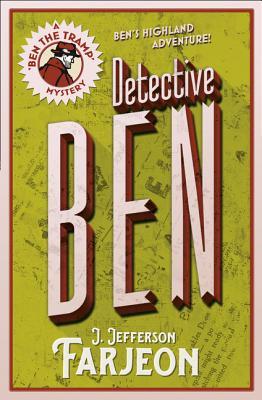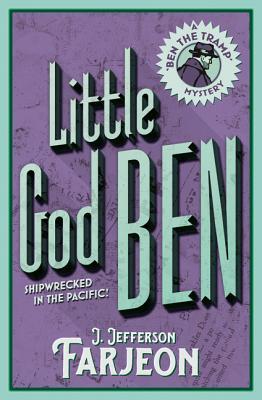
Part of Series
Ben the tramp, the awkward Cockney with no home and no surname, turns detective again – and runs straight into trouble. Ben encounters a dead man on a London bridge and is promptly rescued from the same fate by a posh lady in a limousine. But like most posh ladies of Ben’s acquaintance, this one isn’t what she seems. Seeking escape from a gang of international conspirators, Ben is whisked off to the mountains of Scotland to thwart the schemes of a poisonous organisation and finds himself in very unfamiliar territory. With its startling prelude, Detective Ben is a glorious adventure, told with the unsurpassed mixture of humour and creepy thrills that made J. Jefferson Farjeon famous and Ben the tramp one of the best-loved characters of the Golden Age.
Author

Joseph Jefferson Farjeon was always going to be a writer as, born in London, he was the son of Benjamin Leopold Farjeon who at the time was a well-known novelist whose other children were Eleanor Farjeon, who became a children's writer, and Herbert Farjeon, who became a playwright and who wrote the well-respected 'A Cricket Bag'. The family were descended from Thomas Jefferson but it was his maternal grandfather, the American actor Joseph Jefferson, after whom Joseph was named. He was educated privately and at Peterborough Lodge and one of his early jobs, from 1910 to 1920, was doing some editorial work for the Amalgamated Press. His first published work was in 1924 when Brentano's produced 'The Master Criminal', which is a tale of identity reversal involving two brothers, one a master detective, the other a master criminal. A New York Times reviewer commented favourably, "Mr. Farjeon displays a great deal of knowledge about story-telling and multiplies the interest of his plot through a terse, telling style and a rigid compression." This was the beginning of a career that would encompass over 80 published novels, ending with 'The Caravan Adventure' in 1955. He also wrote a number of plays, some of which were filmed, most notably Number Seventeen which was produced by Alfred Hitchcock in 1932, and many short stories. Many of his novels were in the mystery and detective genre although he was recognised as being one of the first novelists to entwine romance with crime. In addition he was known for his keen humour and flashing wit but he also used sinister and terrifying storylines quite freely. One critic for the Saturday Review of Literature reviewed one of his later books writing that it was "amusing, satirical, and [a] frequently hair-raising yarn of an author who got dangerously mixed up with his imaginary characters. Tricky." When he died at Hove in Sussex in 1955 his obituary in The Times wrote of his "deserved popularity for ingenious and entertaining plots and characterization". Gerry Wolstenholme June 2010


